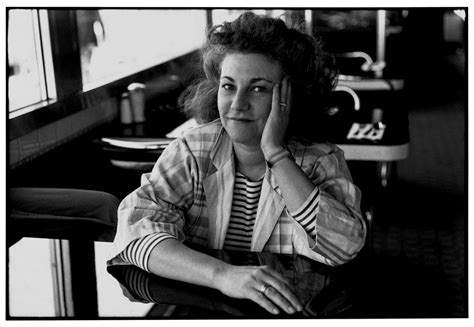Top 63 Quotes & Sayings by Laurie Colwin
Explore popular quotes and sayings by an American author Laurie Colwin.
Last updated on December 21, 2024.
It is often to the wary that the events in life are unexpected. Looser types-people who are not busy weighing and measuring every little thing-are used to accidents, coincidences, chance, things getting out of hand, things sneaking up on them. They are the happy children of life, to whom life happens for better or worse.
When life is hard and the day has been long, the ideal dinner is not four perfect courses, each in a lovely pool of sauce whose ambrosial flavors are like nothing ever before tasted, but rather something comforting and savory, easy on the digestion - something that makes one feel, if even for only a minute, that one is safe.
On Saturday mornings I would walk to the Flavor Cup or Puerto Rico Importing coffee store to get my coffee. Often it was freshly roasted and the beans were still warm. Coffee was my nectar and my ambrosia: I was very careful about it. I decanted my beans into glass...and I ground them in little batches in my grinder.
Dinner alone is one of life's pleasures. Certainly cooking for oneself reveals man at his weirdest. People lie when you ask them what they eat when they are alone. A salad, they tell you. But when you persist, they confess to peanut butter and bacon sandwiches deep fried and eaten with hot sauce, or spaghetti with butter and grape jam.
Cookbooks hit you where you live. You want comfort; you want security; you want food; you want to not be hungry and not only do you want those basic things fixed, you want it done in a really nice, gentle way that makes you feel loved. That's a big desire, and cookbooks say to the person reading them, 'If you will read me, you will be able to do this for yourself and for others. You will make everybody feel better.'
It is a fact of life that people give dinner parties, and when they invite you, you have to turn around and invite them back. Often they retaliate by inviting you again, and you must then extend another invitation. Back and forth you go, like Ping-Pong balls, and what you end up with is called social life.
Woe to those who get what they desire. Fulfillment leaves an empty space where your old self used to be, the self that pines and broods and reflects. You furnish a dream house in your imagination, but how startling and final when that dream house is your own address. What is left to you? Surrounded by what you wanted, you feel a sense of amputation. The feelings you were used to abiding with are useless. The conditions you established for your happiness are met. That youthful light-headed feeling whose sharp side is much like hunger is of no more use to you.



















